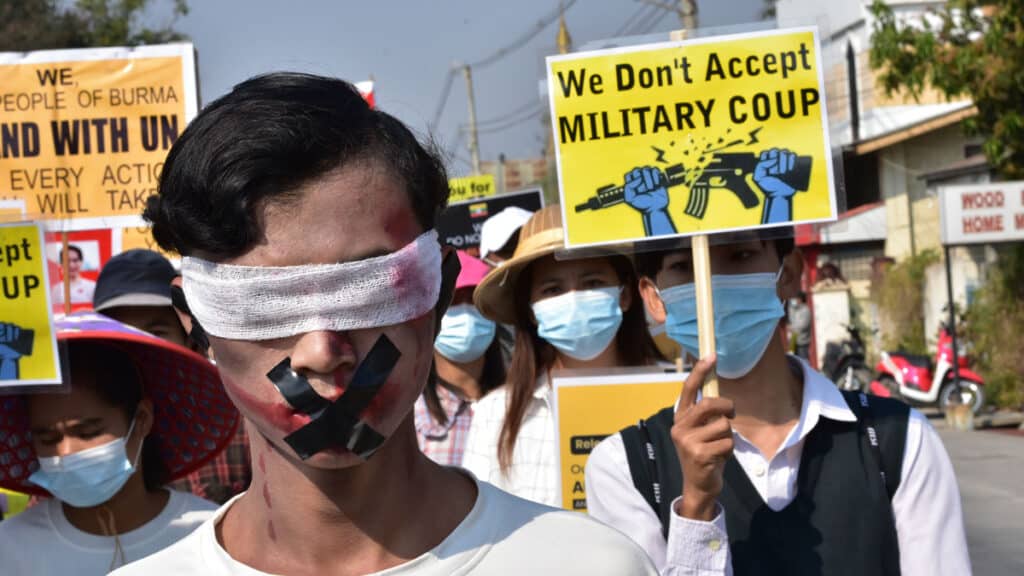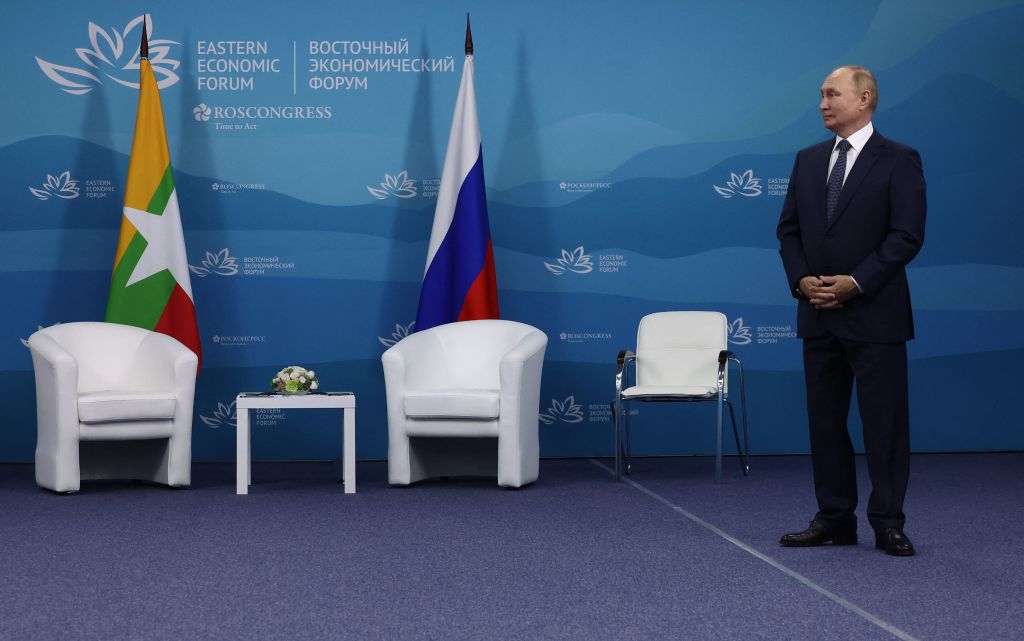13 July 2022
Memorandums of Understanding (MoUs) between Rosatom and Myanmar’s Ministry of Science and Technology cover cooperation in training and skills development in the field of nuclear energy and shaping positive public opinion on nuclear energy in Myanmar.
The two sides held talks on Monday (Image: Rosatom)
The MoUs were signed at a meeting between the state-owned Russian firm’s Director General, Alexey Likhachov, and the Chairman of the Myanmar State Administration Council, Senior General Min Aung Hlaing. The MoUs were signed on the Myanmar side by the Minister of Science and Technology Myo Thein Kyaw.
In its statement, Rosatom said “the parties stressed that the signing of the Memorandums lays a solid foundation for the development of further cooperation on practical projects”.
The Myanmar government’s account of the meeting said the parties had talked “about cooperation in the sectors beneficial to peoples of both countries in atomic energy technological cooperation arena, conducting the science and research, manufacturing of pharmaceuticals, agriculture, livestock, industry and foodstuff sectors through the peaceful use of nuclear energy”.
In 2019, Myanmar produced 24.3 TWh of energy with 13.7 TWh from fossil fuels and 10.5 TWh from hydro and the two countries have already cooperated in the field of nuclear power. In June 2015, Russia and Myanmar signed a preliminary agreement to cooperate in the peaceful uses of nuclear energy.
That followed on from a May 2007 agreement to construct a nuclear research centre in Myanmar – previously known as Burma – that would comprise a 10 MWt light water reactor working on 20%-enriched U-235, an activation analysis laboratory, a medical isotope production laboratory, silicon doping system, nuclear waste treatment and burial facilities.
Although Myanmar was a founding member of the International Atomic Energy Agency, it does not have any nuclear energy at the moment. It signed a country programme framework with the IAEA in 2016 and also joined the Convention on Nuclear Safety in the same year. It has been a signatory of the Nuclear Non-Proliferation Treaty (NPT) since 1992.
Researched and written by World Nuclear News



